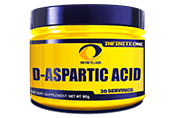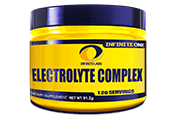

Superior Increases in Muscle Growth with these 2 Ingredients
Table of Contents
Superior Increases in Muscle Growth with these 2 Ingredients
Whey protein is probably one of the most important supplements you can add to your supplement arsenal not only for increasing lean muscle mass but also its potent health benefits. Acute studies have reported that whey protein isolate (60 grams per day) evaluated over six months resulted in lower cortisol levels (lean muscle preservation). Whey is nutrient dense but relatively low in energy (~4 kcal/g), supplementation is an efficient method to promote skeletal muscle anabolism while promoting catabolism in fat cells and therefore is hypothesized to improve both muscle growth and fat loss.In addition to resistance training, whey protein ingestion may play a significant role as a regulator of muscle mass and recovery from exercise.
Whey is high-quality protein source containing large amounts of essential amino acids, important in the protein synthesis. It is thus possible that addition of whey, when used chronically in conjunction with resistance exercise may be more anabolic for skeletal muscle than ingesting only typical mixed meals such as chicken breasts and tuna fish throughout the day.
The Perfect Diet Fuel: More Muscle, Less Fat
A previous study reported whey protein supplementation resulted in more weight loss than a control group receiving maltodextrin while in conjunction with a calorie-restricted diet. After 12 weeks, weight loss was consistently higher in the whey protein subjects, primarily the result of losing body fat (subjects taking whey protein lost 6.1 percent of their body fat mass). The whey protein group subjects also lost significantly less lean muscle mass compared to control subjects. During the 21-week-resistance training period, total-body heavy resistance exercise workouts were carried out twice a week. Either 15 grams of whey isolate protein dissolved in water or an equivalent amount of non-energetic placebo was ingested immediately before and after each bout of resistance exercise in the gym. The researchers examined muscle growth, and muscle anabolic signaling genes. Some of the key findings of the study were:
- Both groups increased lean muscle mass, but they whey protein group improved more. At the end of the 21 weeks, the placebo group had gained 2.57 kg lean body mass. The whey protein isolate group had gained 3.1 kg lean body mass. Timed intake of 15 g of whey protein isolate both immediately before and after each exercise session further increased resistance training-induced vastus lateralis (i.e. quadriceps) muscle hypertrophy.
- Anabolic gene responses were further enhanced with whey protein isolate compared to the control group.
Long Term Whey Protein and Carbohydrate Drink Use Ups Muscle Mass
One of the problematic issues with research studies is that many last a few weeks, as in the above study that lasted only twelve weeks. What about the lifter that trains every day and uses whey protein?
Researchers took 61 healthy subjects, and randomly allocated into either whey protein, soy protein, or carbohydrate groups and followed a resistance exercise program for nine months. All subjects performed a periodized resistance training, training three times per week in 3 mesocycles of 3 months each. The program comprised multiple (3 – 5) sets of a range of exercises. All groups consumed their supplement every day with breakfast or after exercise.
- The whey protein group consumed 21.6g of whey protein concentrate plus 22.5g of maltodextrin,
- the soy protein group consumed 20.0g of soy isolate plus 24.5 g of maltodextrin and,
- the carbohydrate group ate 45.2g of maltodextrin.
The researchers found that body mass increased significantly across the three groups, and the whey protein group was resulted in significantly greater muscle mass (by 3.3 ± 1.5 kg) than both the soy (by 1.8 ± 1.6kg) and carbohydrate (by 2.3 ± 1.7kg) groups). The researchers concluded that a 9-month resistance training program increased body weight, lean body mass, and resting metabolic rate (by around 5%) and while the addition of whey protein supplementation produced superior increases in lean body mass.
Effect of resistance training on resting metabolic rate and its estimation by a dual-energy x-ray absorptiometry metabolic map, by Aristizabal, Freidenreich, Volk, Kupchak, Saenz, Maresh & Volek, in European Journal of Clinical Nutrition (2014)
Hulmi JJ, Kovanen V, Selänne H, Kraemer WJ, Häkkinen K, Mero AA. Acute and long-term effects of resistance exercise with or without protein ingestion on muscle hypertrophy and gene expression. Amino Acids. 2009 Jul;37(2):297-308.

















